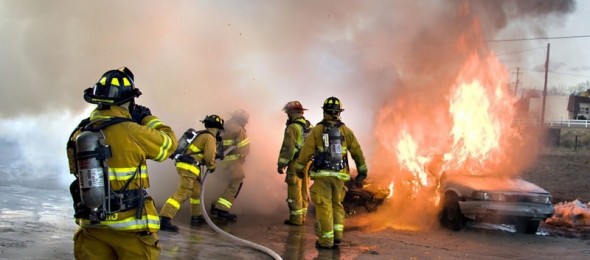Texas’s Fourth District Court of Appeals in San Antonio has ruled that a firefighter was collaterally estopped from challenging arbitration in a dispute over his medical benefits. In City of San Antonio v. Cortes, No. 04-14-00301-CV (Tex. App. – San Antonio, April 29, 2015), a San Antonio firefighter, Cortes, filed a complaint against the City over a health care plan “dependent verification process” designed to ensure all individuals designated on his medical benefit plan were eligible to receive health coverage. In the demand, the San Antonio Fire Chief stated the verification process “should be considered a directive” and failure to comply could result in disciplinary action. According to the firefighter, the process utilized by the Fire Chief exceeded his statutory authority under Section 143.051 of the Texas Local Government Code. In addition, Cortes claimed the verification process denied him his right to organize and engage in collective bargaining pursuant to Section 174.023 of the same code. The firefighter also accused his employer of violating Section 174.105 by failing to negotiate with him in good faith.
In response to the firefighter’s request for declaratory and injunctive relief, the City of San Antonio filed a motion to compel arbitration and abate the trial court proceedings. After the lower court denied the City’s motion, it then filed an interlocutory appeal with Texas’ Fourth District.
On appeal, the court first stated the lawsuit was governed by the Federal Arbitration Act. Next, the appellate court said it would defer to the lower court’s factual determinations but review any legal questions such as whether a valid agreement to arbitrate existed between the parties using a de novo standard. In addition, the San Antonio court stated arbitration must be ordered if the parties’ agreement “includes the claims at issue and the opposing party cannot prove any defense preventing arbitration.”
According to the City of San Antonio, the trial court committed error when it denied the City’s motion to compel arbitration because the firefighter’s claims were identical to those already brought by his Union in a prior case that was related to the same collective bargaining agreement (“CBA”). In that case, the Union unsuccessfully argued equivalent claims were not subject to arbitration:
In City of San Antonio v. International Association of Fire Fighters, Local 624, Nos. 04–12–00783–CV & 04–13–00109–CV, 2013 WL 5508408, at *1 (Tex.App.–San Antonio Oct. 2, 2013, no pet.), the Union filed a lawsuit “alleging that the City had violated Chapter 174 of the Texas Local Government Code by unilaterally altering the prerequisites for health-insurance coverage of firefighters and their dependents without engaging in good-faith collective bargaining with the Union.” Specifically, the Union alleged that “the City unilaterally changed the CBA’s terms by: (1) requiring active enrollment in order for the firefighters to continue receiving health-care benefits; and (2) threatening termination of coverage for currently covered dependents unless the firefighters provide additional information.” Id. The City filed a motion to compel, arguing that under the terms of the CBA, the Union’s claims had to be compelled to arbitration. Id. After the trial court denied the motion and the City filed its interlocutory appeal, this court considered whether the Union’s claims fell within the scope of the CBA’s arbitration agreement.
The Fourth Court of Appeals stated:
This court explained that when determining whether the Union’s claims fell within the scope of the arbitration provision, “we focus on the complaint’s factual allegations rather than the legal causes of action asserted.” Id. at *5 (quoting In re First Merit Bank, 52 S.W.3d 749, 754 (Tex.2001)). Because the Union sought “a judicial declaration that the City has, without authority, changed health-care benefit eligibility without bargaining collectively,” a court could not “make such a declaration without first interpreting the current CBA provisions regarding health-care benefits, and then determining whether the information or action required by the City alters or changes the CBA’s current provisions.” Id. This court thus concluded the Union’s claims fell within the scope of the arbitration agreement. Id. Neither party appealed this court’s decision and mandate issued. Thereafter, Cortes filed the underlying lawsuit containing the same allegations as the lawsuit filed by the Union. The City argued in its motion to abate and compel arbitration that because Cortes is in privity with the Union, he is bound by this court’s holding in City of San Antonio v. International Association of Fire Fighters, Local 624, 2013 WL 5508408, at *5, under the principles of res judicata and/or collateral estoppel, and cannot relitigate the issue of whether these claims can be resolved in a judicial forum or should be compelled to arbitration.
After examining the facts of the firefighter’s lawsuit, the appellate court found that the issues raised by Cortes were previously resolved by the same court, the prior judgment was not appealed, and the firefighter was in privity with the Union. Because of this, Texas’ Fourth District Court of Appeals held that Cortes was collaterally estopped from relitigating the underlying issues asserted, reversed the trial court’s order, and remanded the case with instructions to grant the City’s motion to compel arbitration.
Photo credit: AMagill / Foter / CC BY














